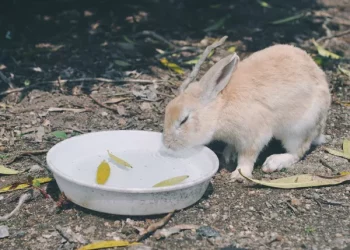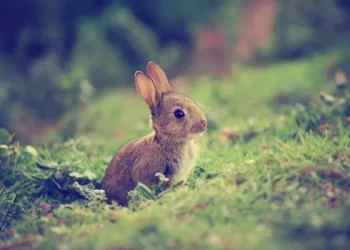Rabbits are some of the most beloved pets around. Their long ears, twitchy noses, and fluffy tails bring joy to many households. However, as a devoted pet owner, you might wonder about the dietary needs of these adorable creatures. Carrots often come to mind when thinking about rabbit snacks, thanks to their portrayal in cartoons and media. But do these crunchy treats really cause digestive distress? In this article, we’ll munch through the facts, myths, and humorous tales surrounding carrots and their effects on rabbit tummies.
The Carrot Conundrum: A Bunny’s Best Friend or Foe?
Let’s hop straight into the carrot conundrum. Carrots, those vibrant orange roots, are synonymous with rabbits. Picture Bugs Bunny casually chomping on a carrot, and you might be tempted to toss a few to your own fluffy friend. But before you become the carrot-carrying hero of your bunny’s world, it’s essential to know the truth.
First, we need to explore the rabbit’s natural diet. In the wild, rabbits munch on grasses, leaves, and herbs. Their digestive systems are designed to process high-fiber foods. This fibrous fare keeps their gut moving smoothly. But when it comes to carrots, the story shifts. Carrots are not fibrous; they are high in sugar and starch, which can lead to digestive issues if fed in excess.
The Digestive Dilemma
Rabbits have a unique digestive system. It consists of a complex interplay of bacteria and enzymes that helps break down food. They are hindgut fermenters, meaning most of their digestion occurs in the cecum. This part of the gut ferments food and produces soft fecal pellets known as cecotropes. Yes, those little nuggets are a crucial part of a rabbit’s diet!
When a rabbit’s diet is unbalanced or consists of too many sugary treats, it can disrupt this delicate system. Feeding your bunny too many carrots can lead to an upset stomach. This might result in diarrhea, which is a clear sign that something isn’t right in the digestive department.
The Sugar Factor
Carrots contain natural sugars. While a small amount is fine, excessive sugar can wreak havoc on a rabbit’s digestive system. Think of it this way: if you eat too much cake, your stomach might grumble in protest. The same goes for rabbits and their sugar-laden snacks.
The recommended portion is about a tablespoon of carrot per five pounds of body weight per day. This ensures that your rabbit enjoys the crunchy goodness without overdoing it. Moderation is key, as always!
Signs of Diarrhea in Rabbits
So, how do you know if your bunny has had a little too much carrot? Here are some tell-tale signs:
Soft or Watery Feces: Normal rabbit droppings are small, round, and dry. If you notice that they are more like puddles than pellets, it’s a sign to cut back on the treats.
Lethargy: If your usually bouncy bunny is less energetic, it might be feeling unwell.
Lack of Appetite: A bunny that suddenly refuses food is definitely telling you something’s wrong.
Bloating: A swollen belly can indicate digestive distress. If you notice this, it’s time to consult a vet.
Behavior Changes: Any sudden changes in behavior can be a warning sign. Keep an eye on your furry friend.
The Importance of Fiber
Fiber is the hero of a rabbit’s diet. It aids digestion and helps maintain healthy gut bacteria. High-fiber hay should be the primary food for your rabbit. Timothy hay, for example, is a great choice. It provides the necessary fiber and encourages healthy chewing habits.
Vegetables, like leafy greens, are excellent additions. They provide hydration and essential nutrients without the sugar overload that carrots bring. Think of greens as the superheroes of the rabbit world. While carrots can be a sidekick, they should never take center stage.
A Balanced Bunny Diet
To keep your bunny healthy and happy, you should focus on a balanced diet. Here’s a simple guide:
Hay: Unlimited access to hay (e.g., Timothy hay) is a must. It should make up about 80% of their diet.
Fresh Vegetables: Leafy greens should be the star, with carrots as a rare sidekick. Offer a variety, including romaine lettuce, cilantro, and parsley.
Pellets: A small portion of high-quality rabbit pellets can be included but should not dominate their diet.
Treats: Treats like fruits and carrots should be occasional and given in moderation. Think of them as special rewards rather than daily staples.
The Great Carrot Debate
Now that we’ve tackled the science, let’s get a little whimsical. The great carrot debate rages on among rabbit enthusiasts. Some swear by the nutritional benefits of carrots, while others warn of the sugar overload.
See Also: What is a Good Routine for a Rabbit?
Imagine a lively roundtable discussion between passionate rabbit owners. One owner holds up a carrot triumphantly, declaring, “My rabbit loves this!” Another shakes their head, exclaiming, “You’re risking a bunny bellyache!” It’s a scene reminiscent of a culinary competition, complete with passionate pleas and exaggerated gestures.
While both sides present valid points, the truth lies in moderation. Just as humans can enjoy dessert occasionally without adverse effects, so too can rabbits indulge in a slice of carrot cake (figuratively speaking, of course!).
Myth Busting: Carrots and Their Magical Properties
Let’s take a moment to address some of the myths surrounding carrots and rabbits.
Myth 1: Carrots are the best food for rabbits.
False! Carrots are not harmful but should only be a treat.
Myth 2: All rabbits can eat carrots daily.
Incorrect! Just because one rabbit can handle it doesn’t mean all rabbits will. Each rabbit is unique.
Myth 3: Carrots cause dental problems.
While they are crunchy, excessive sugar can lead to other health issues. Regular hay chewing is best for dental health.
The Importance of Hydration
Just as diet plays a vital role in a rabbit’s health, hydration is equally important. Fresh water should always be available. Some bunnies prefer drinking from a bowl, while others favor a water bottle. Observe your rabbit’s preference and ensure they are staying hydrated.
Conclusion
In the end, the answer to the burning question, “Do carrots give rabbits diarrhea?” is not as straightforward as it may seem. Carrots, in moderation, can be a delightful treat for your rabbit. However, an overindulgence can lead to digestive troubles, including diarrhea.
Keep in mind that a balanced diet rich in fiber, fresh greens, and limited treats is essential for your bunny’s health. Always prioritize their well-being and consult with a veterinarian when in doubt.
So the next time you reach for that carrot, think of your furry friend. Will it be a tasty treat or a tummy trouble? Moderation is the magic word! Happy munching to you and your fluffy companions!
Related Topics:





















